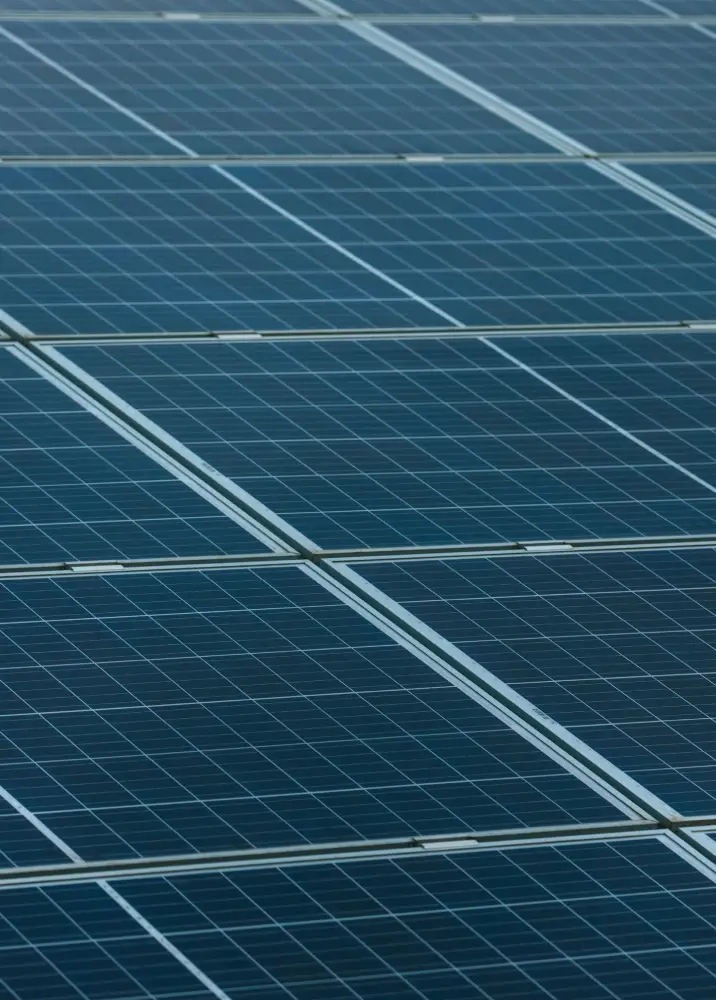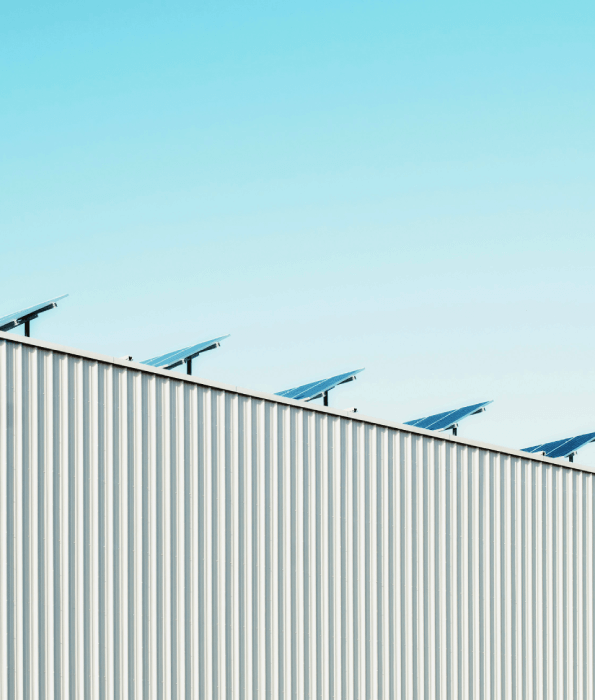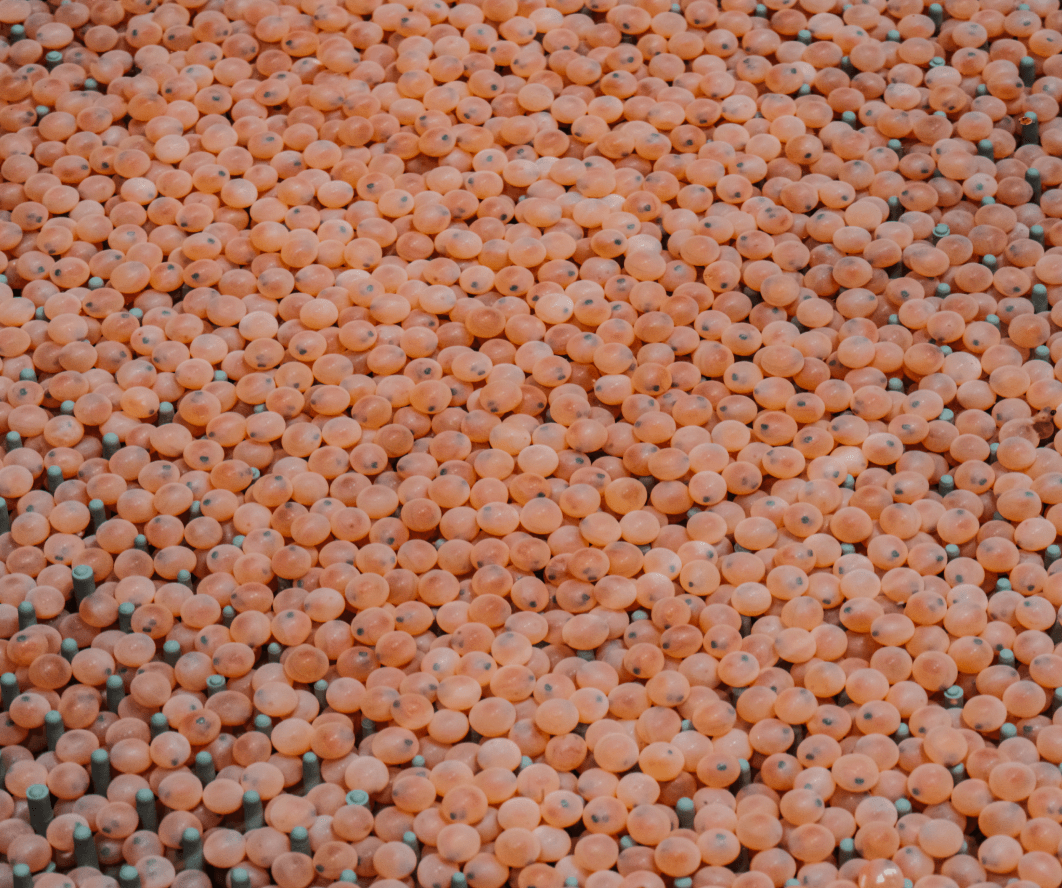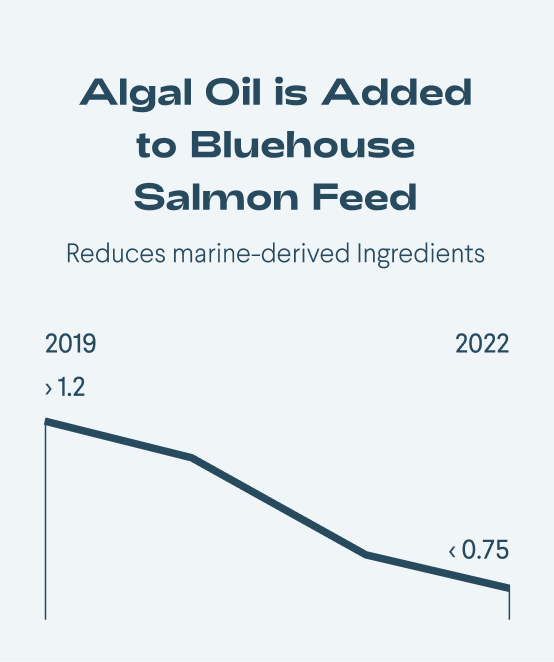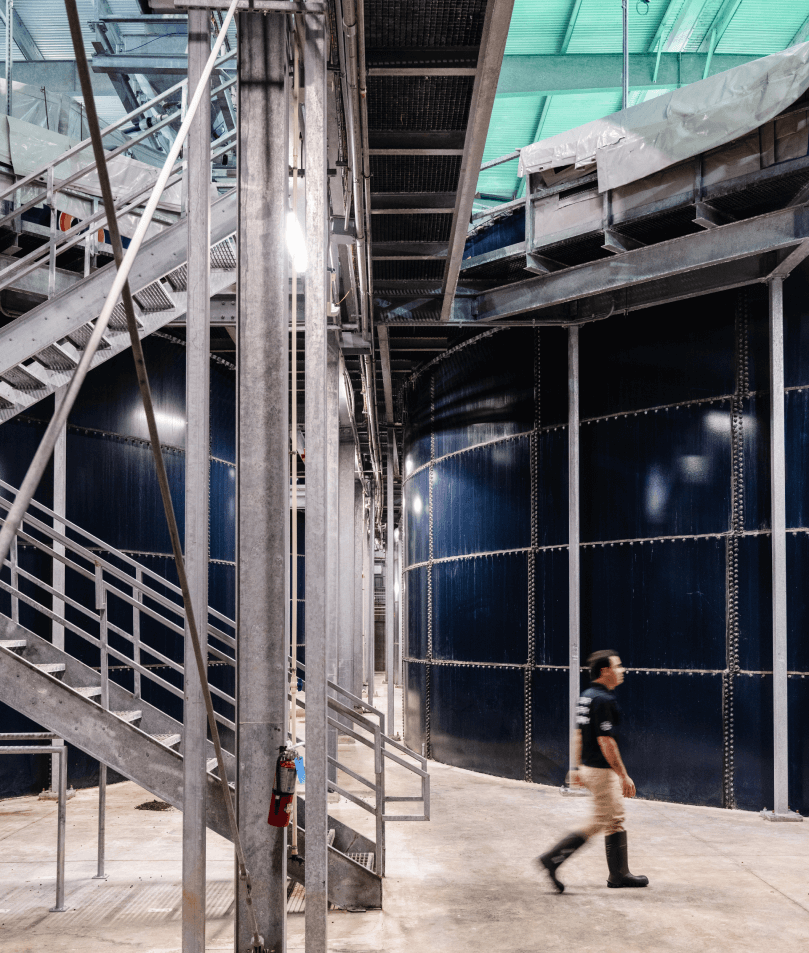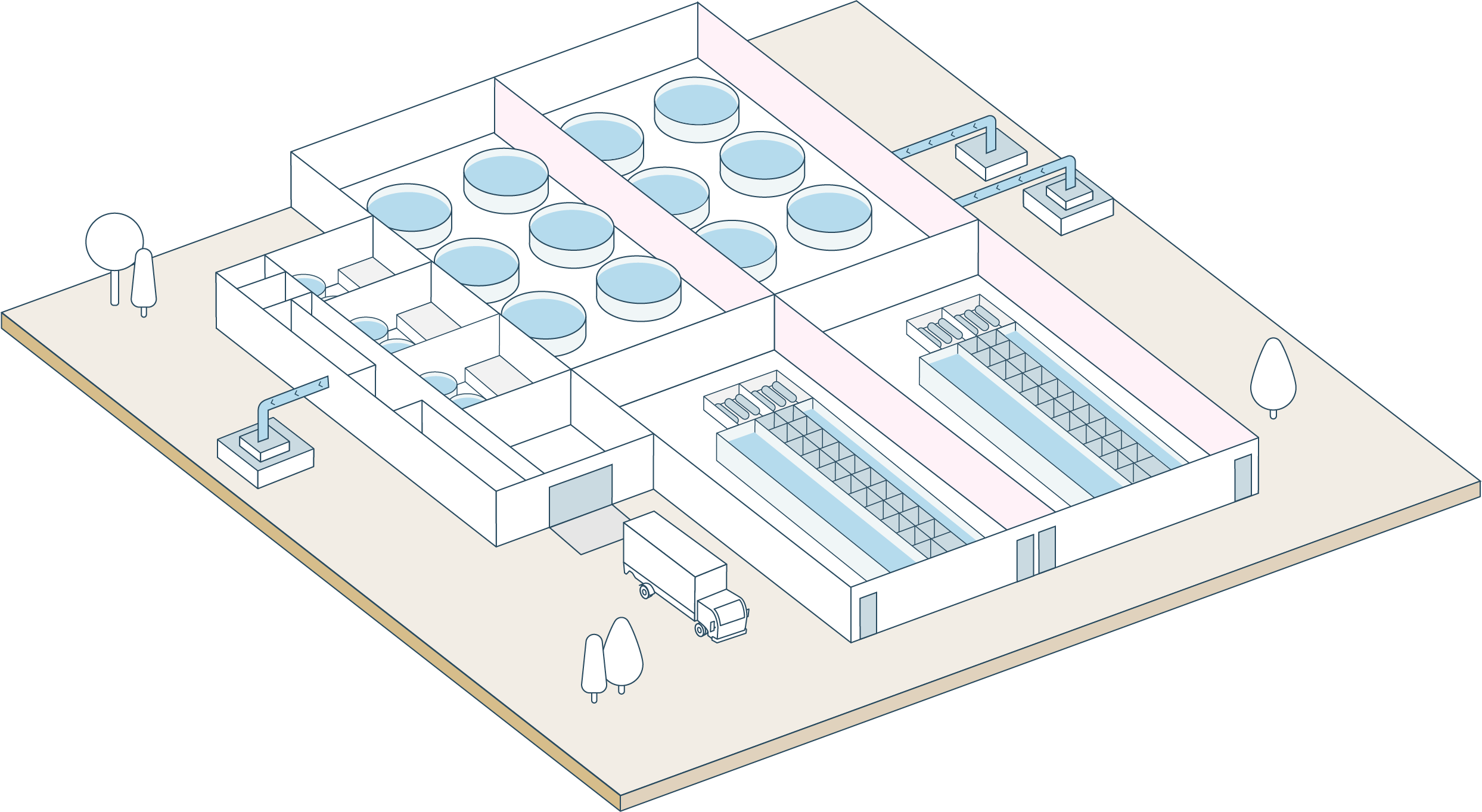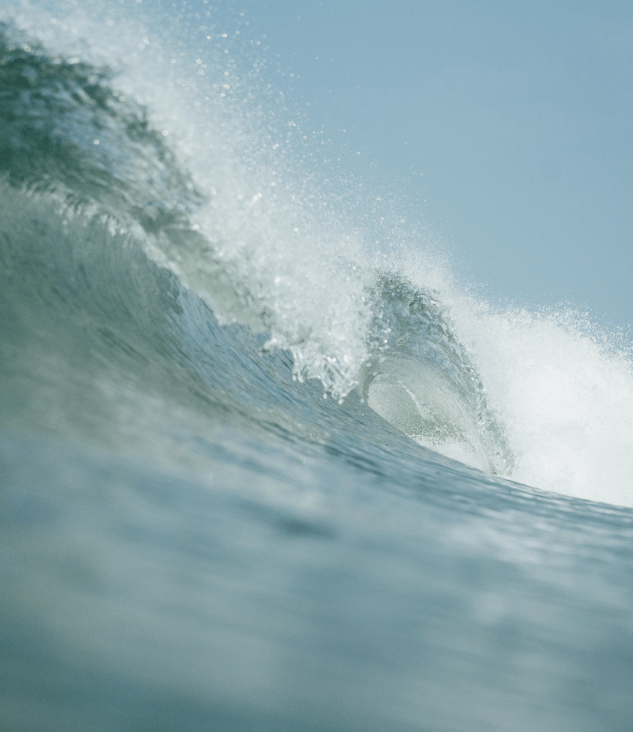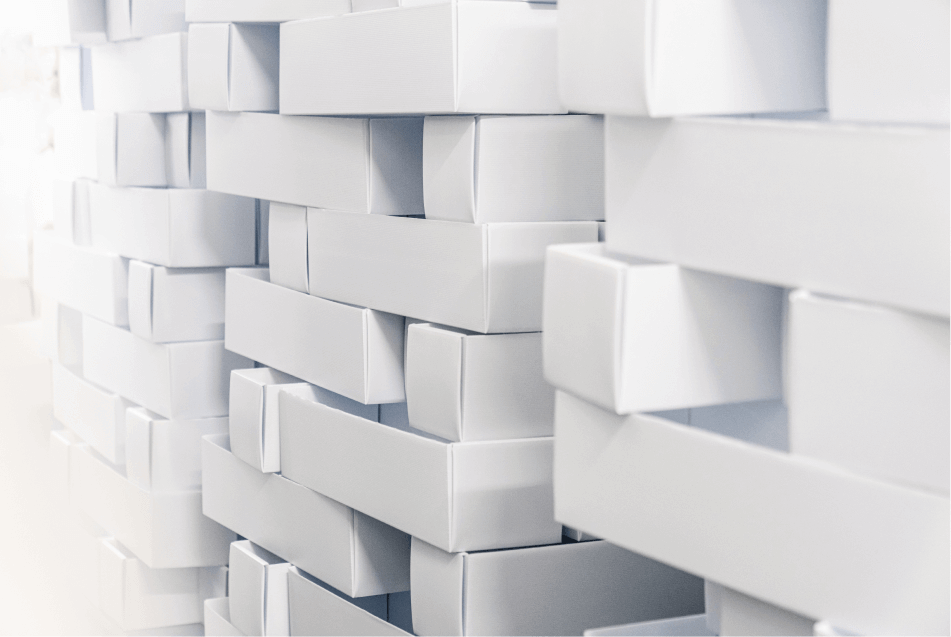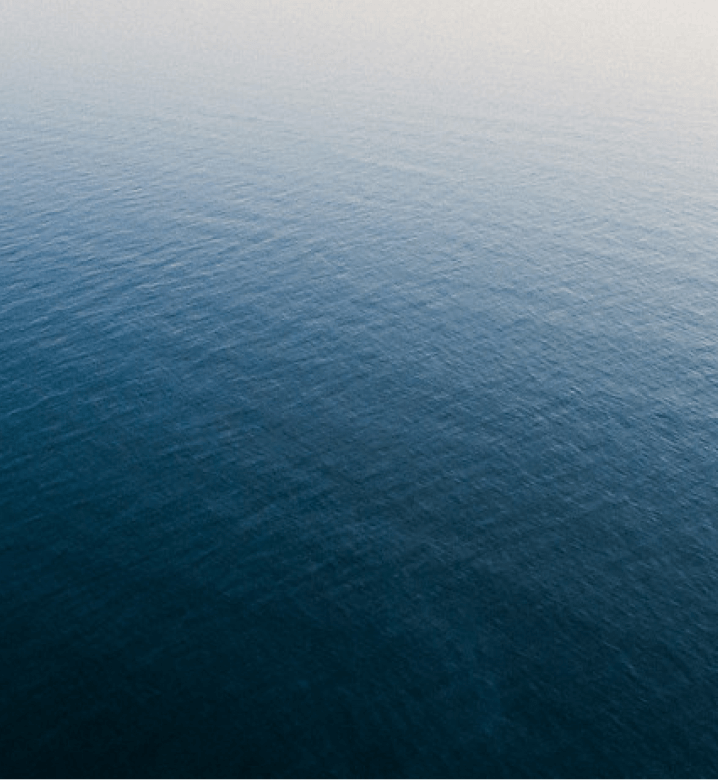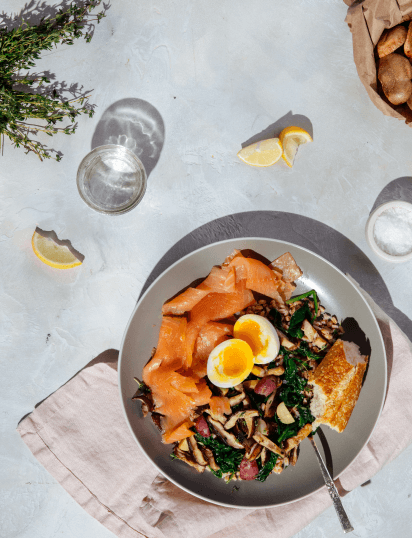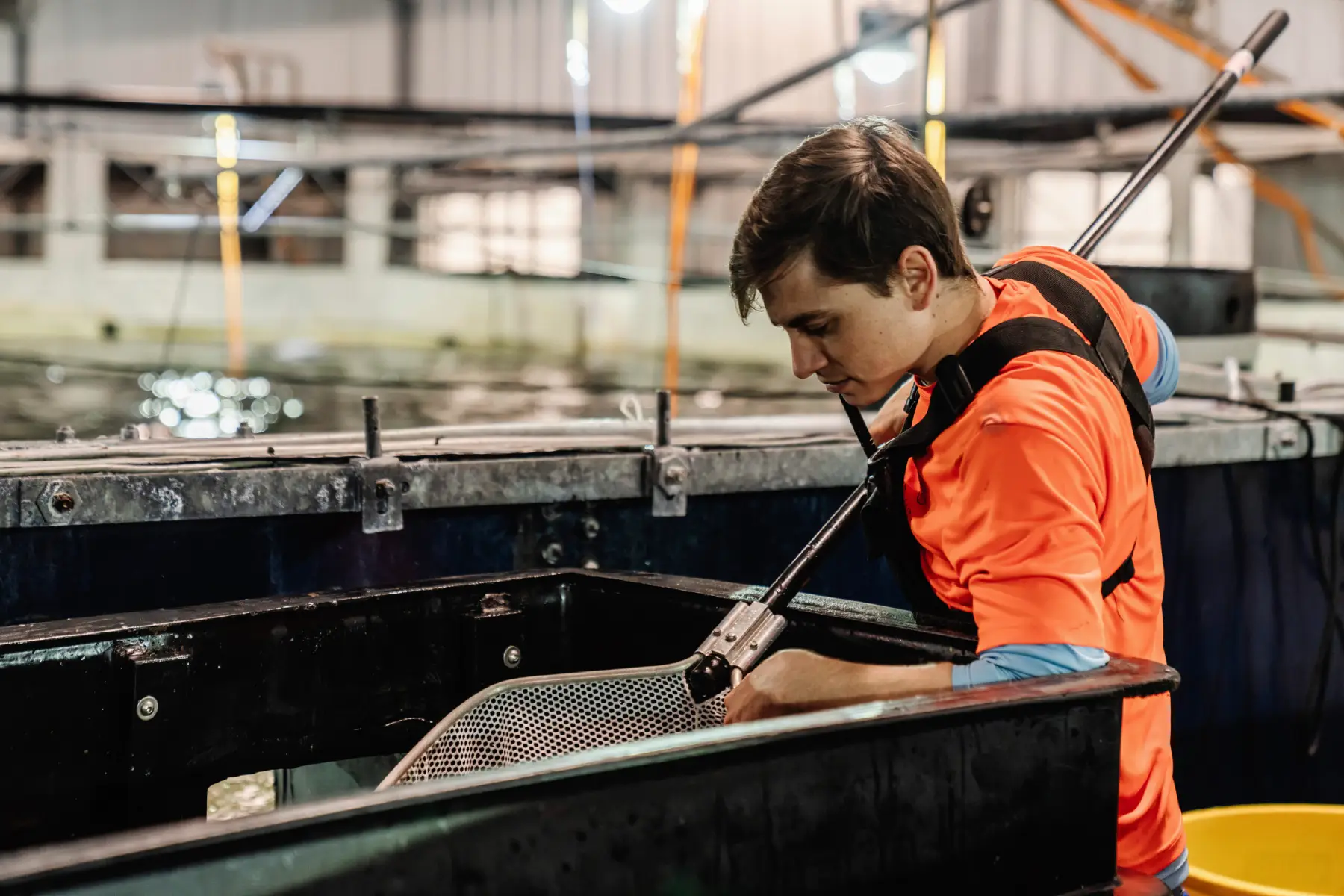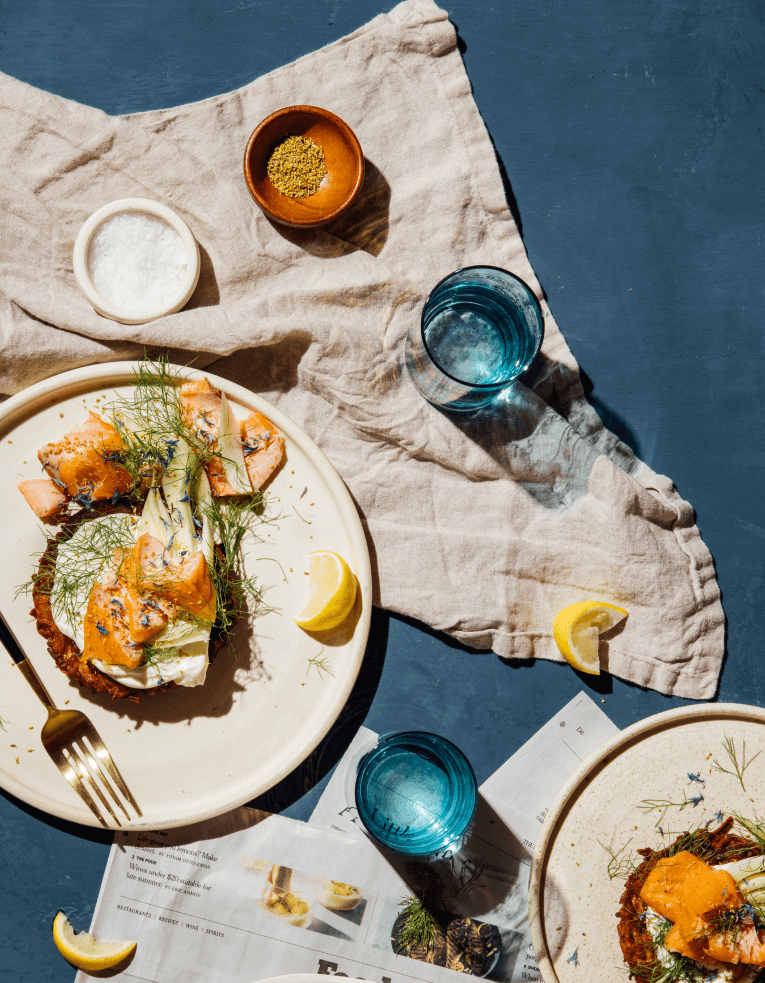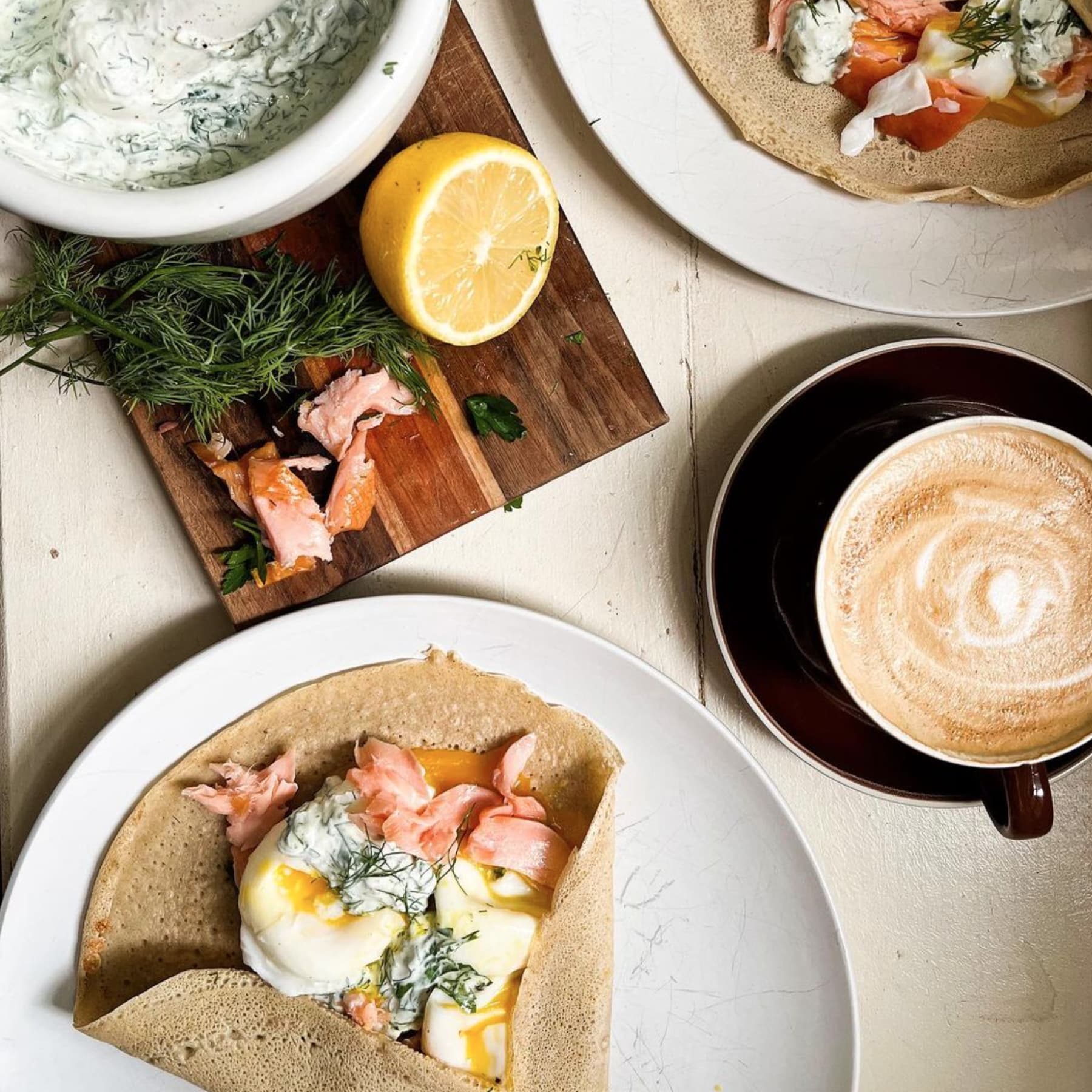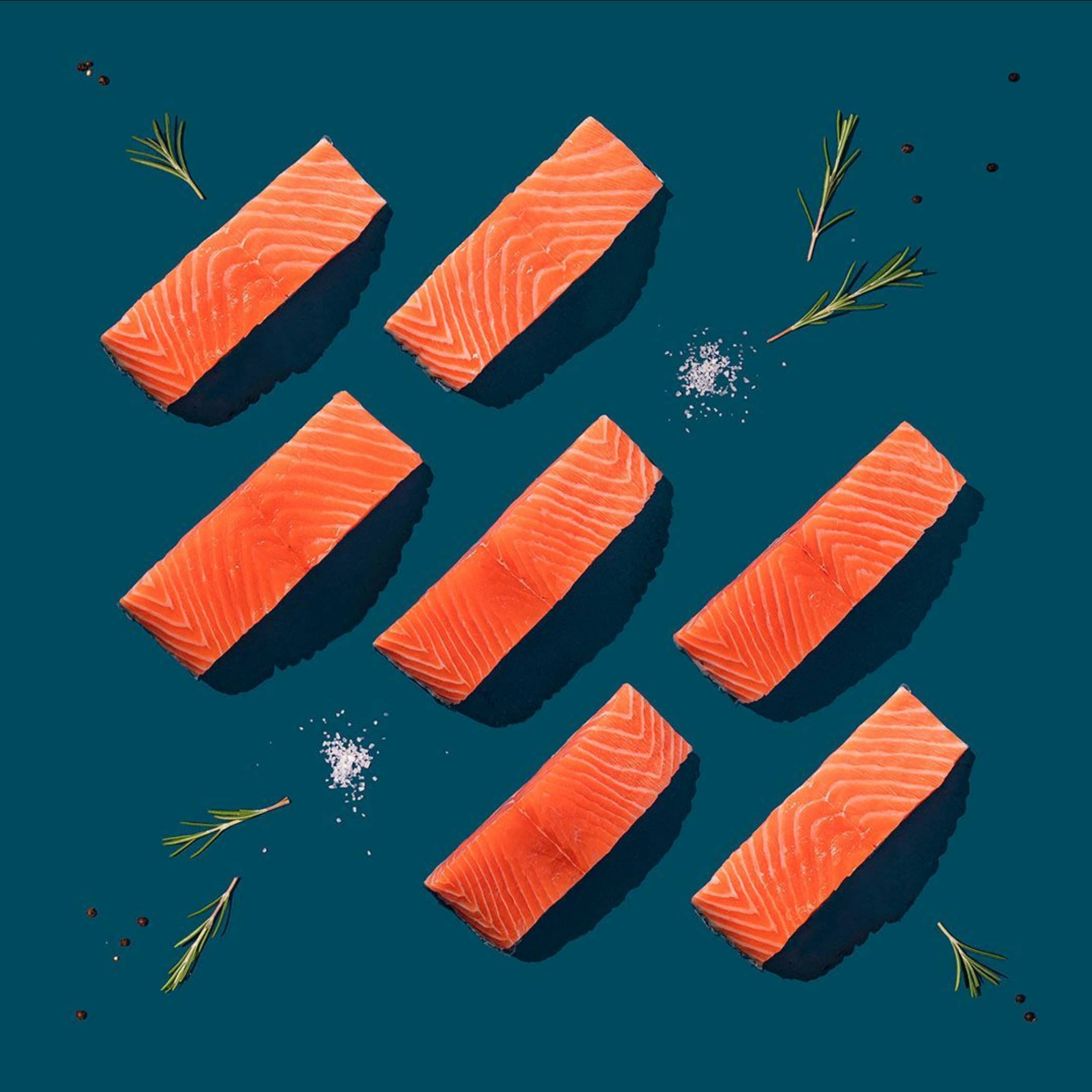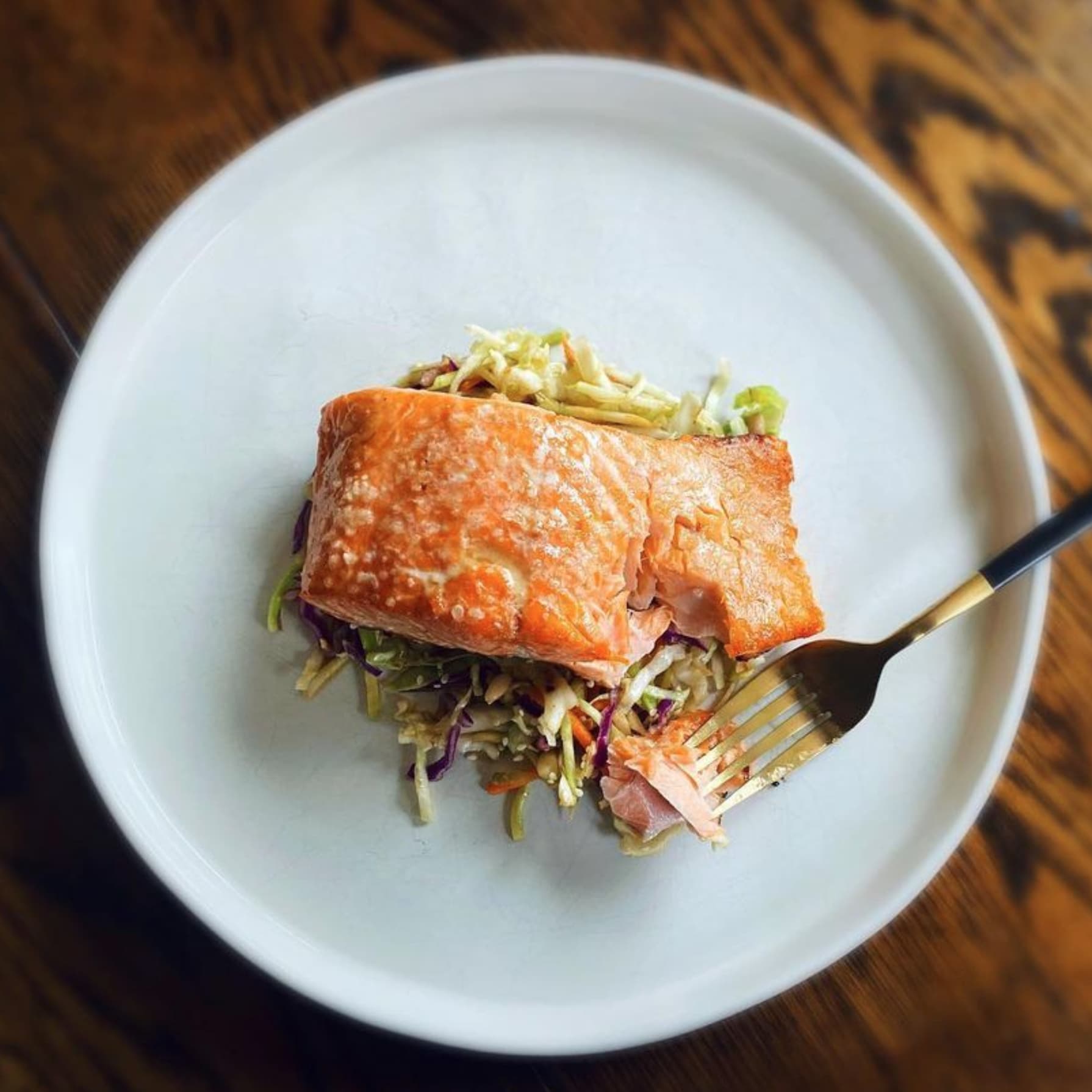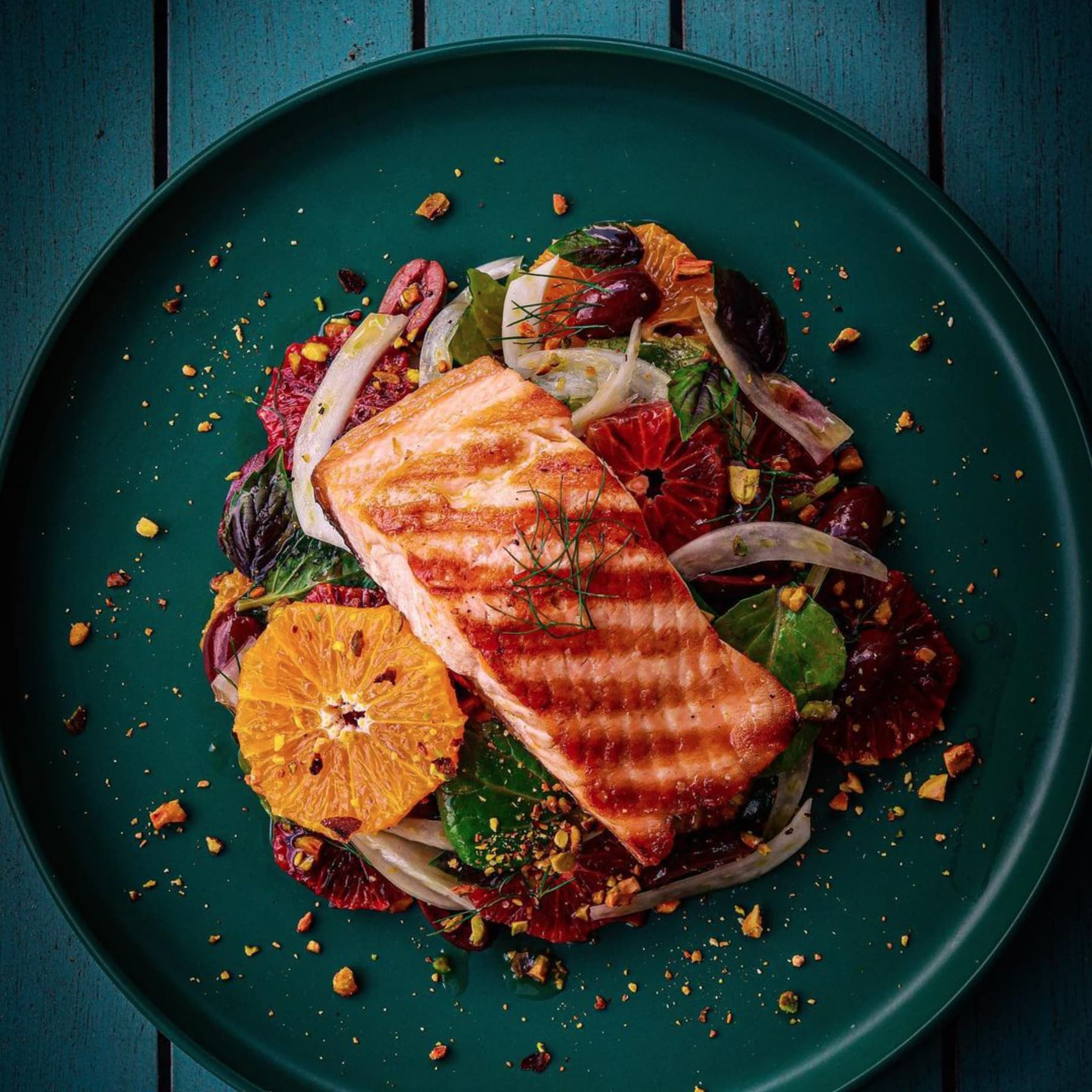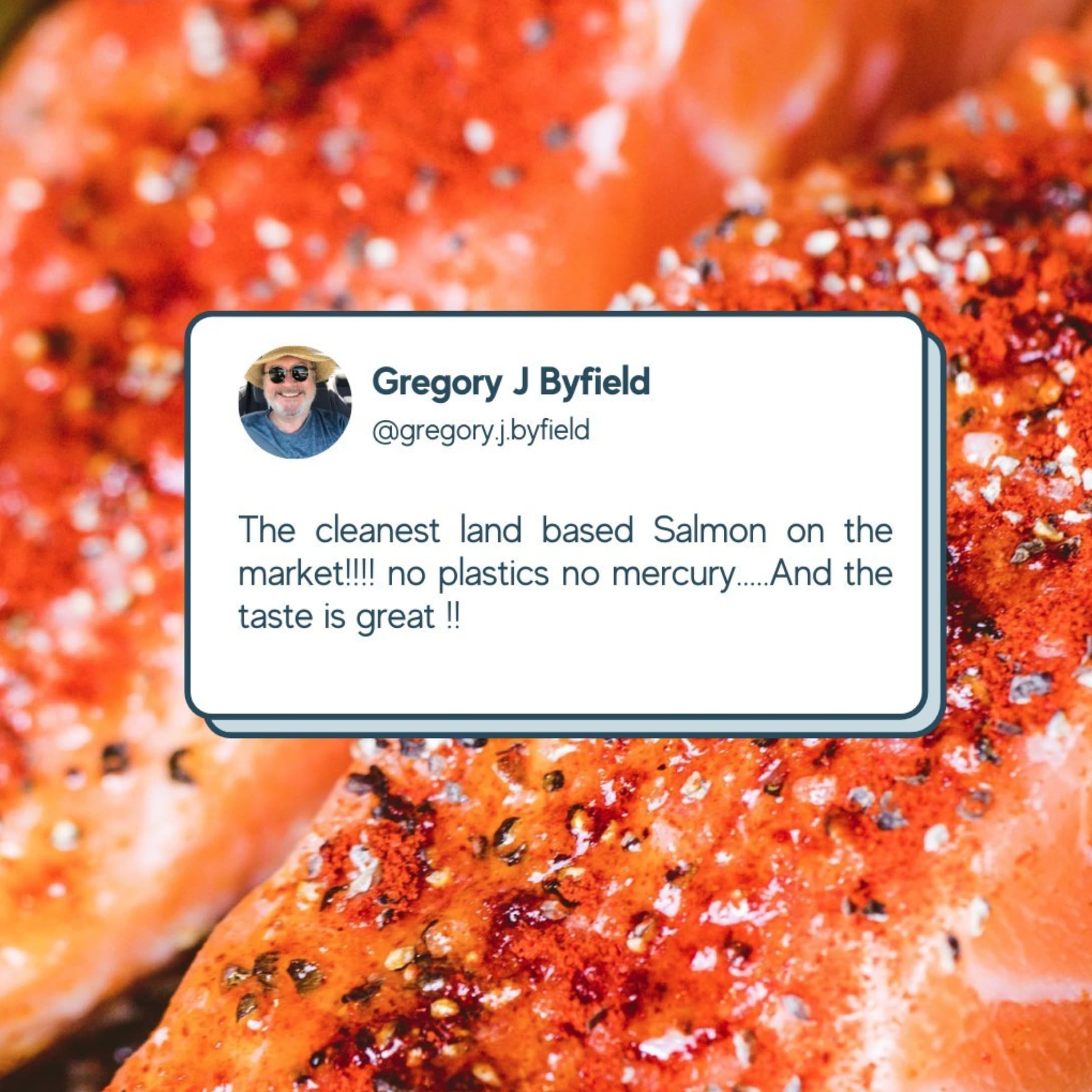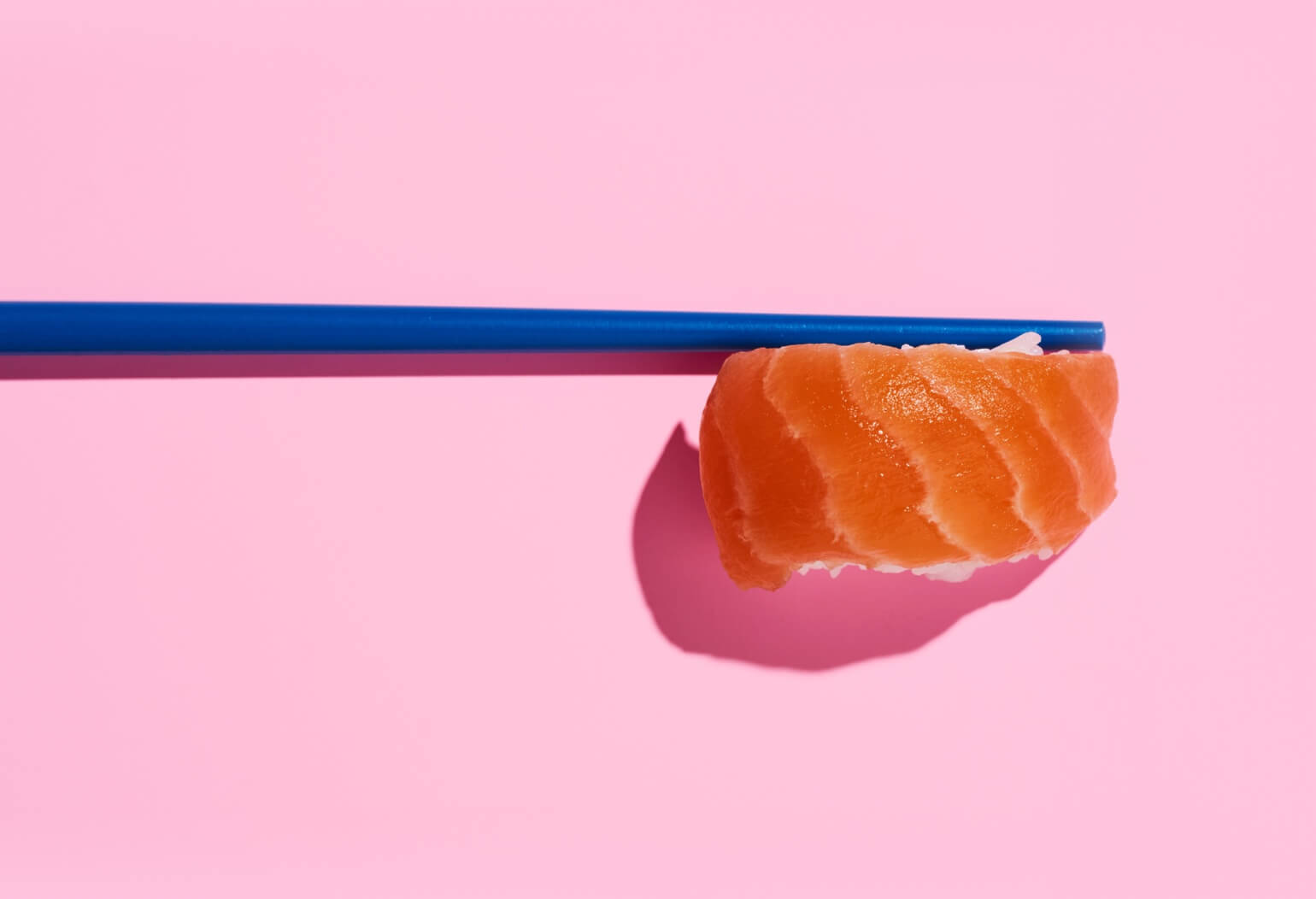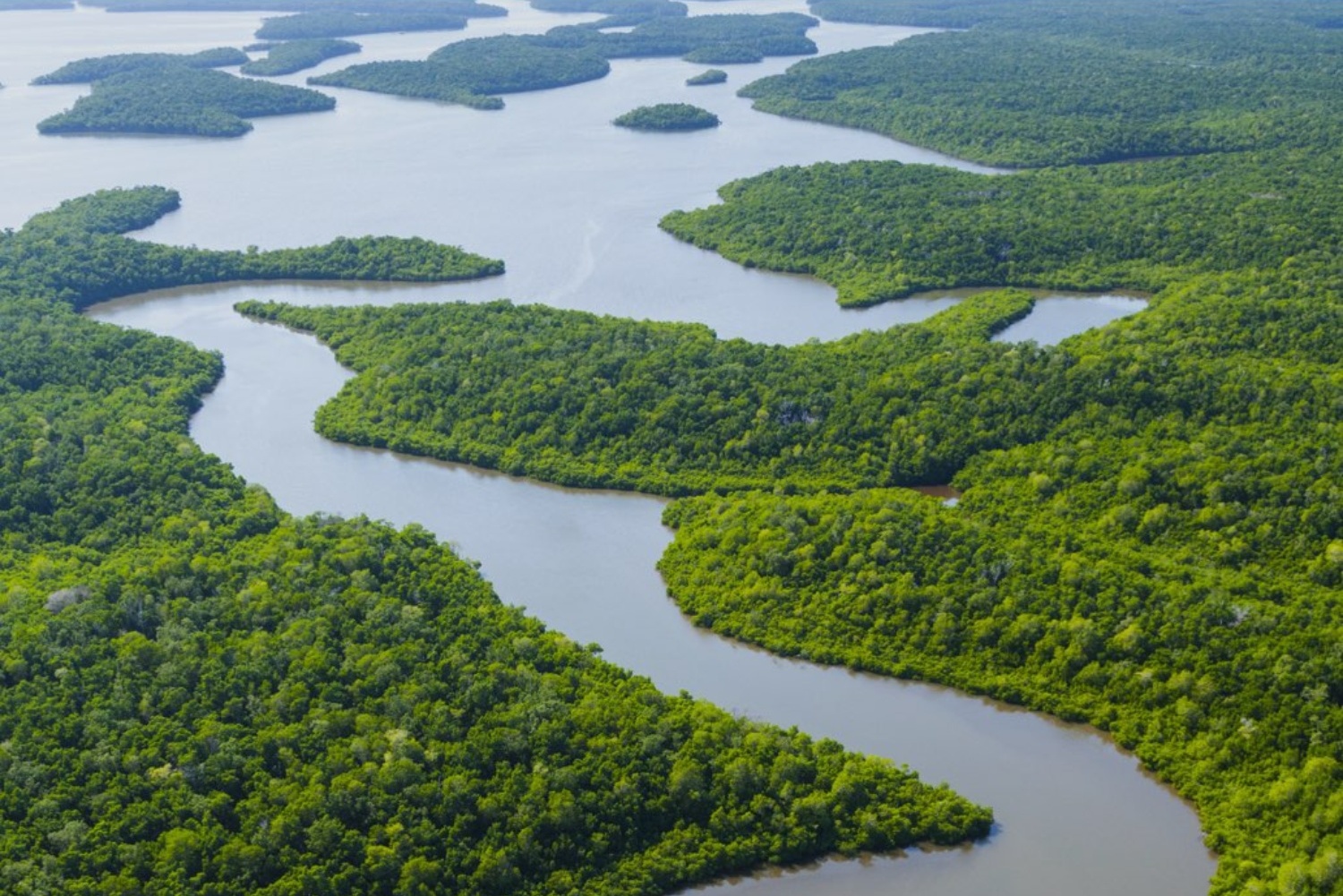
The Problem
Today, the global food system generates up to one quarter of the world’s greenhouse gasses. When human eating habits over-index beef, lamb, pork, and poultry, too many forests are cleared for farmland, too much methane is released into the atmosphere, and too many fossil fuels are burned to produce fertilizers, run farm equipment, and ship food around the globe.
Meanwhile, seafood protein consumption is rising. Most wild fish populations are overfished and can’t absorb new demand. Ocean-based fish farming offers answers, but some can still pressure our oceans due to the use of antibiotics, parasites and potential escapees into wild waters.
And when 80% of seafood consumed in the US — the world’s largest salmon market — is imported, the carbon footprint remains a heavy tread.
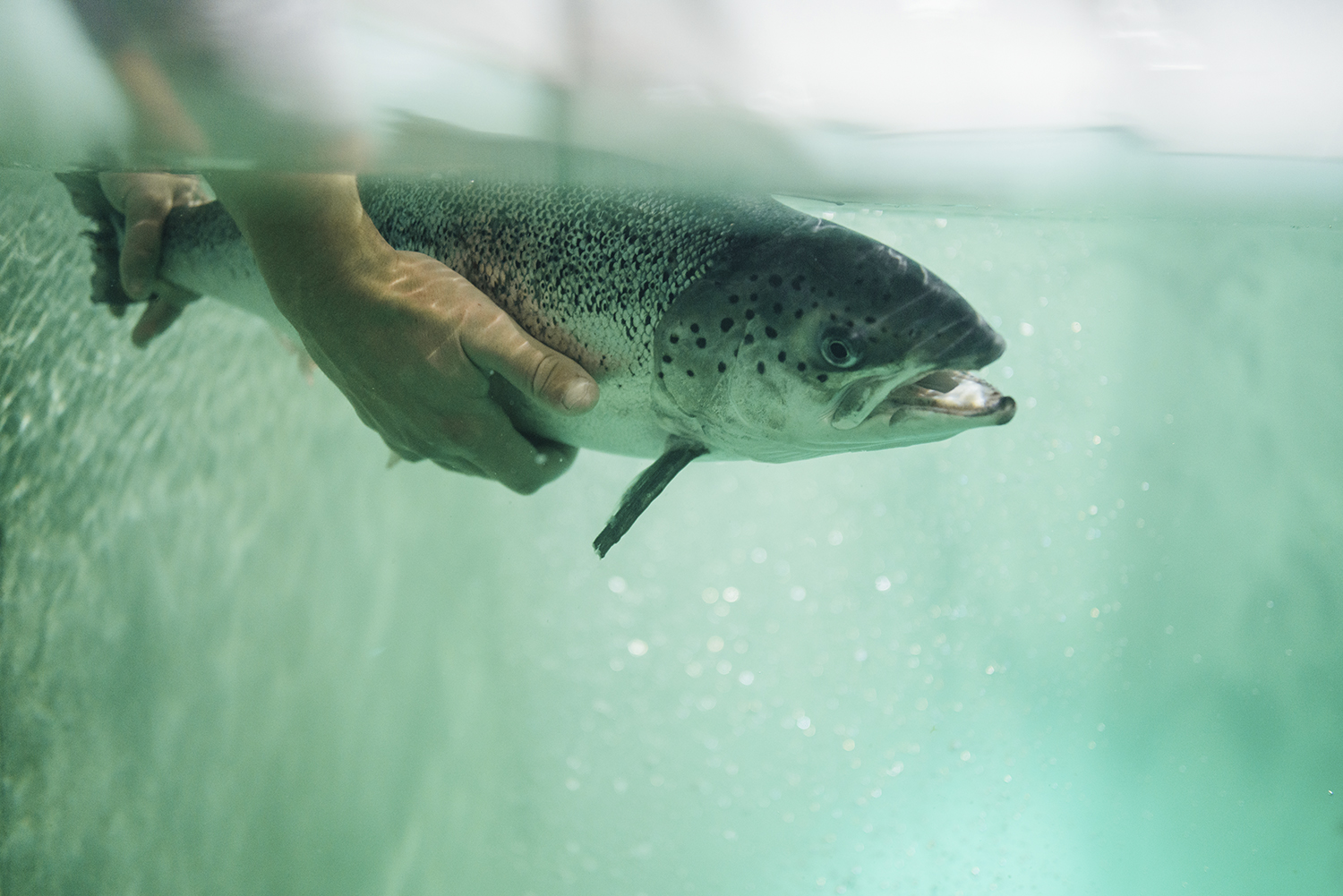
The Solution
We raise fish on land in the U.S. far from wild waters. We call our invention a Bluehouse – like a greenhouse for fish, where we raise fish at optimal conditions for animal health and welfare. We set out to feed the world with sustainable seafood that keeps our oceans blue and our planet green.
